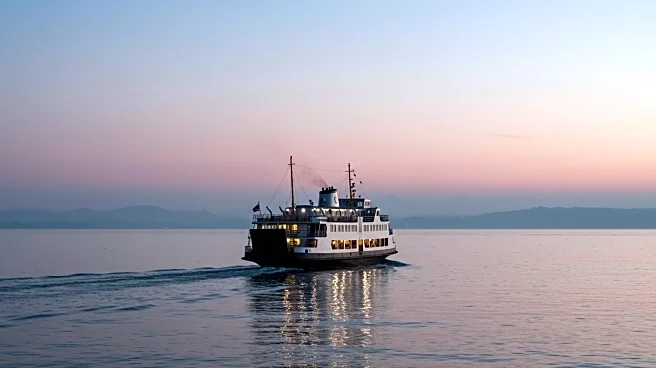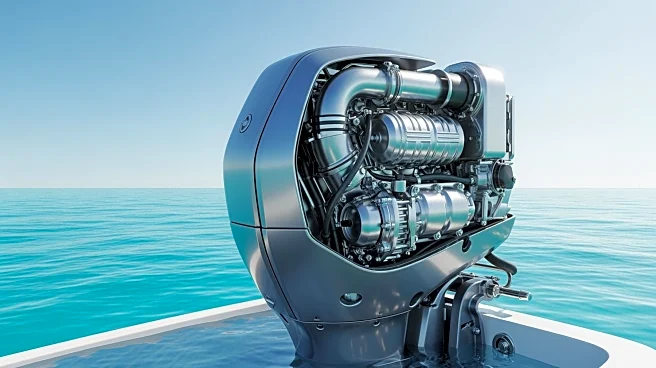What's Happening?
CalMac, the state-owned ferry operator, has paid over £460,000 in compensation to passengers due to delays and cancellations since April last year. The compensation payments for 2024-25 amounted to £432,735, with an additional £33,792 paid in May and June this year. This marks a 37% increase from the previous year, although slightly less than the £454,000 paid in 2022-23. The Scottish Liberal Democrats obtained these figures, highlighting reliability issues within the CalMac fleet and delays in new vessels entering service. The Glen Sannox ferry, built by Ferguson Marine, was delivered late and over budget, while its sister ship, the Glen Rosa, faces further delays. The MV Caledonian Isles has been out of service since January last year and may remain inactive for another four months due to repairs.
Why It's Important?
The compensation payouts by CalMac reflect ongoing challenges in Scotland's ferry network, impacting both passengers and the local economy. The delays and cancellations have affected businesses and individuals, leading to missed opportunities and appointments. The situation has sparked criticism from political figures, such as Jamie Greene of the Scottish Liberal Democrats, who accuse the government of mismanaging the ferry network. The reliability issues and aging fleet underscore the need for investment in infrastructure and timely delivery of new vessels. The compensation payments also highlight the financial burden on the operator, which could influence future policy decisions regarding transportation and public services.
What's Next?
CalMac plans to introduce 13 new vessels to its fleet by 2029, aiming to reduce technical problems and cancellations. The Scottish Liberal Democrats have launched a consultation on the future of the country's ferry services, seeking input from stakeholders to address the network's challenges. The government may face increased pressure to ensure timely delivery of new ferries and improve the reliability of existing services. As the situation develops, passengers and businesses will be looking for improvements in service quality and reliability, which could influence public opinion and policy decisions.









